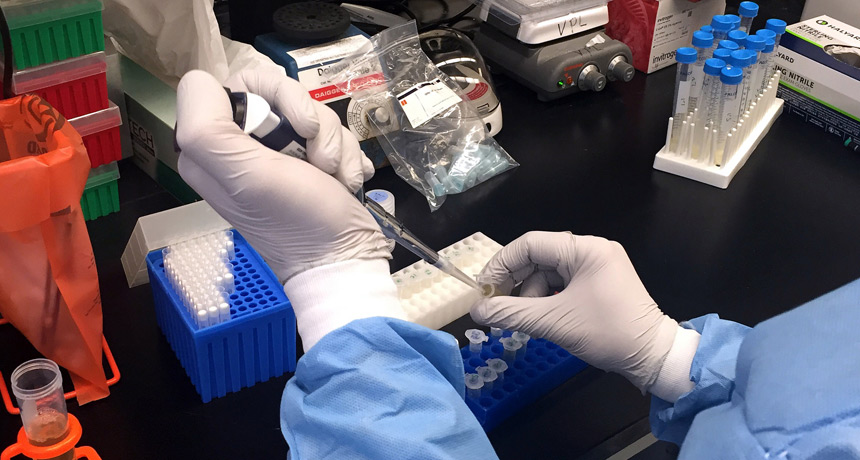(for more about Power Words, click here)
Aedes aegypti A species of mosquito that can transmit the viruses responsible for several tropical diseases, including dengue fever, yellow fever and West Nile disease.
Centers for Disease Control and Prevention, or CDC An agency of the U.S. Department of Health and Human Services, CDC is charged with protecting public health and safety by working to control and prevent disease, injury and disabilities. It does this by investigating disease outbreaks, tracking exposures by Americans to infections and toxic chemicals, and regularly surveying diet and other habits among a representative cross-section of all Americans.
chikungunya A tropical disease that has been crippling large numbers of people in Africa and Asia. It’s caused by a virus that is spread by mosquitoes. It recently has been spreading widely throughout warm nations. More than 3 million people have suffered through its initial flu-like symptoms. A large share may also go on to develop intense pain in their muscles and joints that can last months to years. There is no cure or vaccine.
continental United States Also known as the lower 48 states, these are all U.S. states except Alaska and Hawaii. They all reside below Canada and above Mexico.
dengue A potentially lethal infectious disease transmitted by mosquitoes. No vaccine yet exists to prevent infection with the virus responsible for the disease, which causes high fevers, severe headache, joint pain, pain behind the eyes, rash, bone pain and sometimes mild bleeding. A more severe form of the disease, known as dengue hemorrhagic fever can cause uncontrolled bleeding if not treated right away.
epidemic A widespread outbreak of an infectious disease that sickens many people (or other organisms) in a community at the same time. The term also may be applied to non-infectious diseases or conditions that have spread in a similar way.
infection A disease that can spread from one organism to another.
Latin America Nations in the Americas south of the United States, most of which now speak Spanish as their native tongue. The major exception within this region: Brazil, which speaks Portuguese.
test positive A term that indicates that some test has confirmed what it was looking for, such as a disease or poison.
transmission (In medicine) To spread a disease or toxic agent.
virus Tiny infectious particles consisting of RNA or DNA surrounded by protein. Viruses can reproduce only by injecting their genetic material into the cells of living creatures. Although scientists frequently refer to viruses as live or dead, in fact no virus is truly alive. It doesn’t eat like animals do, or make its own food the way plants do. It must hijack the cellular machinery of a living cell in order to survive.
Zika virus A virus that can be transmitted to humans via mosquitoes. About 20 percent of infected people get sick. Symptoms include a slight fever, rash and pinkeye and usually fade quickly. A growing body of evidence suggests that the virus could also cause a devastating birth defect — microcephaly. Evidence suggests it may also cause neurological conditions such as Guillain-Barré syndrome.

